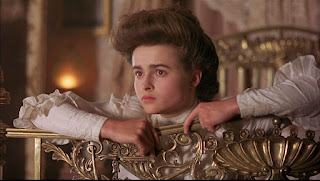Ruth Jordan was born in Poland in 1921. Two years after her birth, her father, a Jewish rabbi, moved the family to America, where they led an itinerant life until settling in Suffolk, Virginia, where they started a grocery and dry goods store.
James McBride and Ruth MacBride Jordan
Growing up, James McBride knew nothing of his mother’s story. She refused to speak of it. But slowly, he got her to tell it, writing it down for us in The Color of Water, published in 1995.
Ruth’s father made she and her brother do all the work of the store when they weren’t in school. As a Jew, Ruth felt isolated. The store was in a black neighborhood and customers were cheated. Ruth’s father had no respect for them, but Ruth found them peaceful and trusting. He also abused Ruth sexually. Her brother ran away at 15 and Ruth herself went to New York at 17 to live with relatives.
Ruth was fascinated by Harlem which was “magic” at the time. She found work as a manicurist up there, but Dennis McBride, whom she met at her aunt’s leather factory, knew how much trouble she could get into and was appalled. He began asking her out, but he didn’t want to marry. “In the South, I could be shot for marrying you,” he said. He took Ruth to the Metropolitan Baptist Church in Harlem where everyone loved Pastor Abner Brown. Dennis sang in the choir. Ruth converted to Christianity. “My world expanded in every way.” Ruth finally felt loved.
Living in a one room apartment, Dennis and Ruth had four children. “It was the happiest time in my life,” Ruth told her son. They applied for an apartment in the new Red Hook project in Brooklyn and got in. They had their own bathroom finally. The place was integrated, lovely, in Ruth’s eyes. She and Dennis started a prayer meeting in their living room (which was still going 40 years later). They had three more children, and one on the way in 1957, when Dennis died of lung cancer.
Ruth was shocked and scared. Many people helped them, but times were hard. She did not want to be on welfare. When Ruth asked her Jewish family for help, they told her, no. “We sat shiva for you. You are no longer part of our family.” When Ruth’s mother was dying, she was not allowed to see her.
Soon enough, however, another black man, Hunter Jordan, tall, capable and half Indian, wooed Ruth and her eight children. He took his life savings and bought the family a house in Queens. He couldn’t live in their chaos, however, and came on weekends to see Ruth and her kids, and help out. He and Ruth had four more kids, bringing the total to 12.
Ruth established a powerful framework for her family. She didn’t socialize, except in church. She had a distrust of authority and insisted on privacy. The kids were not to talk about themselves to others. Ruth had seen a lot of prejudice, but she never responded to it. The only things important to her were church and school. “What’s money if your mind is empty?” was her refrain.
Ruth went to every free museum and event she could find in New York, traveling on the subways with a gaggle of her black children in tow. She scanned the school programs, to get her kids into the best schools, usually Jewish, and sent them to camp in the summer. She insisted they all get good grades. She was a poor housekeeper and cook, but she didn’t care what the world thought of her. She refused to acknowledge her whiteness. “I’m light skinned,” she said.
When Ruth was 51, her second husband had a stroke. She was devastated. She went to work at the Chase Manhattan Bank as a secretary, still slim and pretty. At home, she designated the oldest kid the “king” or “queen,” the authority. The house was “organized chaos,” where the kids were always hungry, always debating. Civil rights and black power were the order of the day. The kids did not consider themselves poor or deprived. As they began to grow up they found the best college scholarships they could and often went on to become doctors and professors.
Ruth’s son James reports that all of his siblings had some color confusion. “Is God black or white?” “God is the color of water,” Ruth told the kids. She communicated her Jewishness through her respect for education. In 1974, the family moved to Delaware. James played in jazz bands, became a journalist.
James felt he needed to get to know his mother so as to know himself. He applied all his journalistic skills to her life, visiting Suffolk, Virginia and turning up her old friends. He published The Color of Water to great acclaim. It helped Ruth face her past. Ruth went on to get a degree in social work at Temple University in 1986 and settled in Ewing, Pennsylvania. At Christmas, all of James’ siblings collected at her house, anxious to recreate the madcap, color-blind, sophisticated atmosphere in which she had brought them up. Ruth died in 2010.
I loved this story of a young girl moving from the darkness of a family trying to survive without love, to the blazing light of its abundance. Ruth McBride Jordan built a life with two wonderful husbands and a dozen kids. They felt that “education, tempered by religion, was the way to pull yourself out of poverty.” She was fearless in moving about New York and fierce when her children got in trouble. “Educate your mind,” she told her children. And they did.






